Curious but a little overwhelmed when you see CRISPR in the news headlines? Know about GMOs but aren’t sure what they mean for the produce aisle?
You recognize that the discoveries scientists are making every day have the potential to impact your life. You are a parent trying to decide if that Arctic apple is safe for your kids. How did they make a non-browning apple anyway?
You are a biology student trying to understand how genes provide the instructions to build every cell in your body – with a test on Friday! You are a teacher trying to translate genomic research for your students – hope they prepare for that test on Friday!
You’ve just been diagnosed with cancer, and you want the right treatment for your disease. You are a doctor, and you want to know how to use genetic testing to improve your patients’ health.
Welcome to Shareable Science. We’re glad your curiosity led you here.
It’s easy to get excited about the newest scientific discoveries on the news, but the increasingly technical jargon is tough to digest. Like leathery beef jerky, sometimes science news tastes great, but just won’t go down.
Fortunately, I’ve spent time using that jargon. I have a PhD in genetics from Emory University, so I understand the nearly foreign language of genetics research. As a member of the faculty at Emory, I directed a research-based DNA testing lab, so I’m familiar with the tools and challenges of the field. But I also spent two years working at a church doing communications work and outreach to families, and I taught medical students at Emory. It was teaching that helped me realize my true passion: explaining science for everyone.
Trust us. We speak the lingo.
In 2006, the founders of the newly-formed HudsonAlpha Institute for Biotechnology offered me the opportunity to build a science education program from the ground up, and I jumped at the chance. That was more than 10 years ago, and I’ve spent those years working with a strong team of expert science educators to develop digital tools, hands-on kits, public seminars, summer camps, after-school programming and professional development opportunities, all in an effort to engage you – the parent, the student, the teacher, the patient, the healthcare provider – in science that relates to your life.
Here on Shareable Science, I take off my lab coat (actually, I rarely wear one) and dig into the cutting edge genomics and biotechnology discoveries that could change our world. Serious science can be entertaining, comical and even whimsical. It can also tug at our emotions, challenge our viewpoints and open our eyes to the wonder of life.
Nowhere is this more true than in biology, especially genetic and genomic research, where life itself is built. We are bombarded daily with new information about what our genes could reveal about our health and personalities or even our characteristics, like athletic ability and facial features.
Roll up your sleeves!
So let’s dig into these complex subjects together. Let’s find ways to understand the soundbites we hear on the radio or the headlines that zip by on Facebook. Because scientists sequencing poplar trees think they can use their discoveries to create a better biofuel, and you deserve to know how in the world that works. Genetically hornless dairy cattle graze the fields of California, and you may wind up drinking their milk. You may have even heard that elephants don’t get cancer. Who wouldn’t want to know more? We’re passionate about telling those stories.
We think you’ll see why.
And that’s science you can share.
Follow the link to visit Shareable Science: https://hudsonalpha.org/shareable-science/
